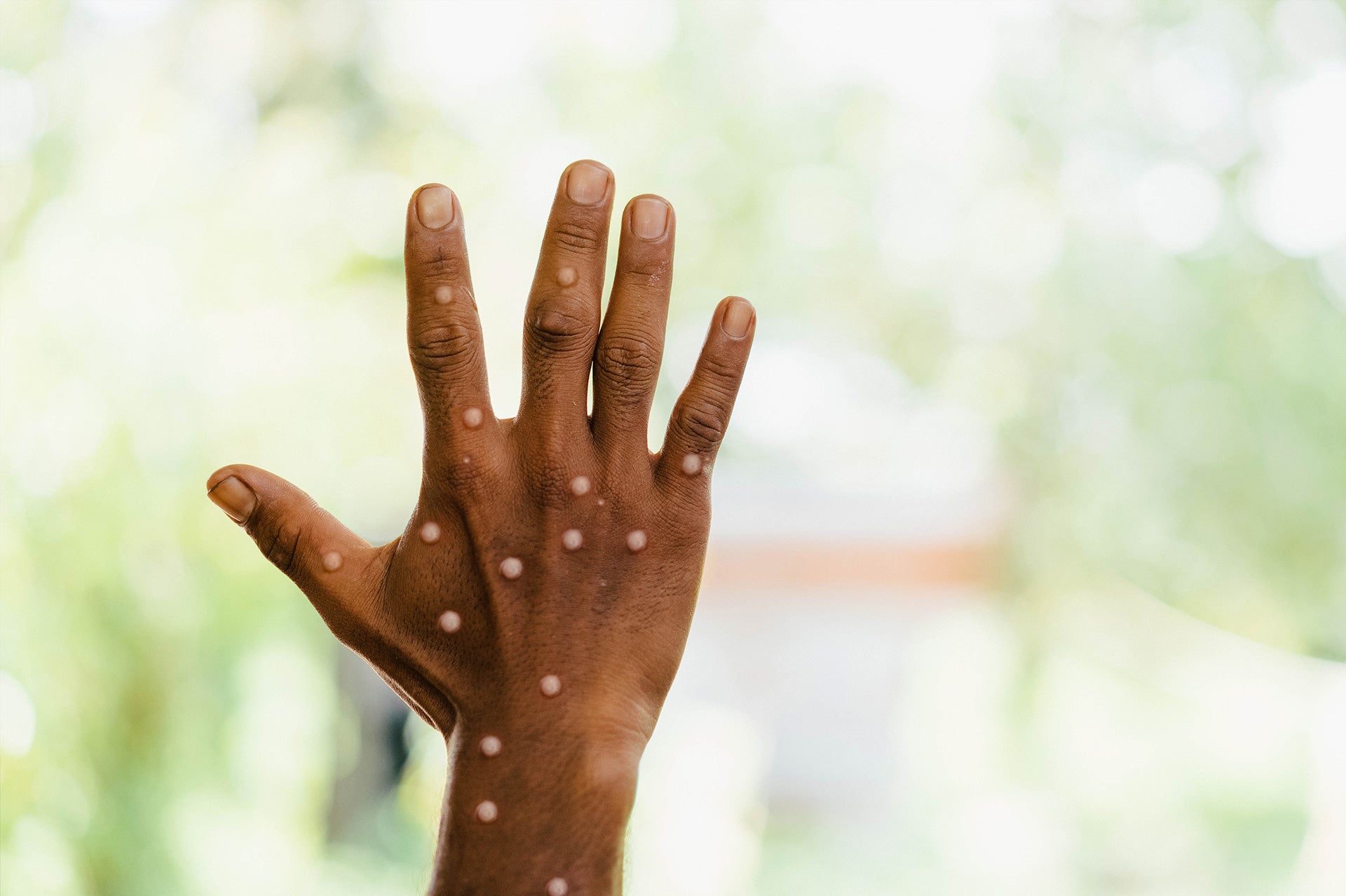By Dr. Mohammad Farhan

While the Covid-19 pandemic is hopefully waning, reports of the latest health scare, monkeypox, have alerted people. So far, according to Our World data, approximately 350+ cases of monkeypox have been reported around the world. While some countries have already started taking it seriously by implementing quarantine policies, others are simply studying its consequences.
What is monkeypox, and how does it spread?
Monkeypox starts with respiratory symptoms and distinct rashes in the mouth and hands, which gradually bloom on the rest of the body. Other symptoms include fever and swelling. It was first discovered in 1958 in a colony of monkeys brought to Denmark from Africa. Although monkeypox is a zoonotic disease, which means it can be transferred from sick animals to humans, the name monkeypox also suggests that monkeys spread this disease. In humans, monkeypox does not have much to do with monkeys. Perhaps species of small rodents found in west and central Africa could be the reason for the spread. The first case of monkeypox in a human was discovered in the 1970s and was mainly spread through coming into close contact with affected people. People living in the forest might have been exposed to monkeypox-infected rodents by close contact through scratches or bites or during preparing the bushmeat and becoming infected.
Are monkeypox outbreaks rare?
Previously, many cases and the occasional outbreak of monkeypox happened in the past 20-30 years. It is endemic in several African countries. In 2003, there was an outbreak of monkeypox in the US, a first outside the African subcontinent. In the US, an earlier monkeypox outbreak was linked with the spread from prairie dogs, which were exposed to rats imported from West Africa.
Is monkeypox related to Covid-19 vaccination?
As cases of monkeypox have started rising, so have the conspiracy theories about the cause of the disease, as also happened with Covid-19. It has been falsely claimed that certain anti-covid-19 vaccines are causing monkeypox. This theory is unproven and is promoted by the anti-vaccination lobby.
Will monkeypox create another worldwide pandemic similar to that created by covid-19?
The good news is that monkeypox is very different to COVID-19. Experts believe that while it is necessary to look out for monkeypox, especially in people traveling from West Africa, the virus is unlikely to behave like Covid-19 did and therefore should not cause a worldwide pandemic. The monkeypox virus and its spread are very different from Covid-19, which spread very quickly. The spread of monkeypox requires close physical and skin-to-skin contact and may take from five to 21 days from exposure to symptoms appearing. The incubation period could be quite long.
Another factor that determines the spread of the virus is its contagiousness. The R0 value determines contagiousness —the average number of infected people by a diseased person. Initially, the R0 value for Covid-19 was between 2 and 3, and for the latest omicron variant, it was close to 8. Compared to Covid-19, monkeypox is also less contagious and has an R0 value of less than 1. This is why public health authorities are confident that monkeypox is containable.
Is smallpox vaccination effective against monkeypox?
Both monkeypox and smallpox are members of the Orthopox family. Smallpox was once a pandemic eradicated in the 1980s by a successful worldwide vaccination campaign. There are multiple reports that smallpox vaccination is 80-85% protective against monkeypox, which is great news. However, immunity will probably be limited in older people and those on immunosuppressants for other treatments. Although America, Europe, and Asian countries have stopped routine vaccination of people against smallpox, smallpox vaccines are still produced. Many countries have stocks of these vaccines to combat bioterrorism, biological warfare, and research. If required, vaccination can be started, especially for healthcare professionals and people who require more protection; however, the World Health Organization (WHO) believes that mass vaccination for monkeypox is not required.
How should you protect yourselves from monkeypox?
Although health experts believe that the risks of monkeypox to the general public are low, multiple precautions can reduce the chances of getting monkeypox. Significant precautions include the avoidance of coming into contact with an individual with symptoms, usage of masks or protective gear when coming in close contact with an individual with symptoms and maintaining good hygiene and good practices in both home and outside.
If you come into close contact with a person with symptoms, or you suspect that you have monkeypox symptoms, you should first isolate yourself and seek medical help and advice immediately. As monkeypox symptoms overlap with those of other diseases like chickenpox, herpes, and syphilis, it is crucial to have medical confirmation. If medical experts confirm that you have monkeypox and mild symptoms, it is likely you will recover within 3-4 weeks.
* Dr. Mohammad Farhan is an Assistant Professor at the College of Health and Life Sciences, part of Hamad Bin Khalifa University
This article is submitted on behalf of the author by the HBKU Communications Directorate. The views expressed are the author’s own and do not necessarily reflect the University’s official stance.










